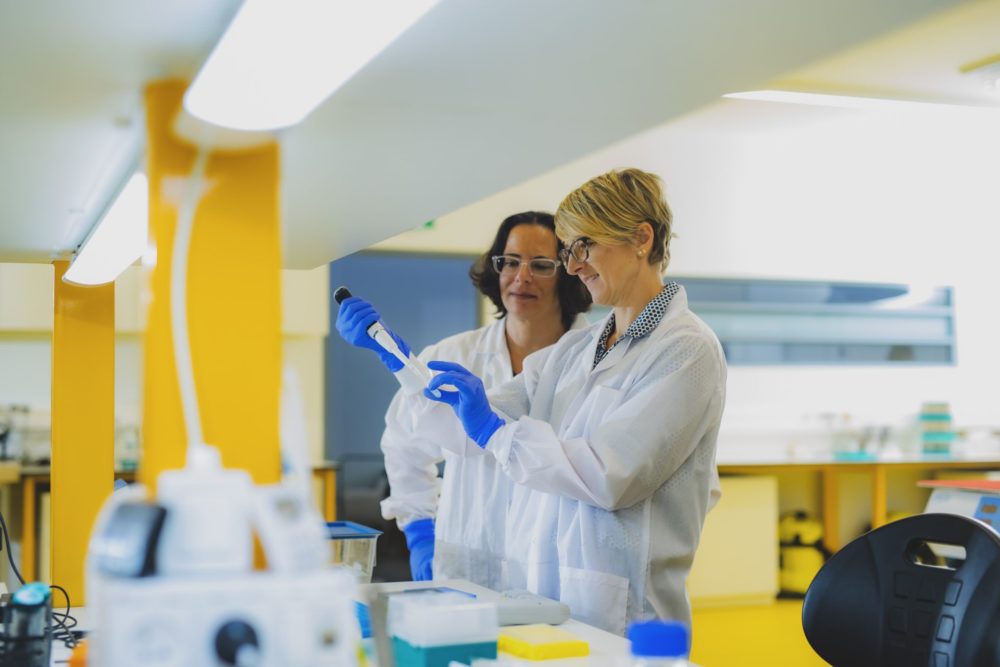As plant-based protein continues to take the foodtech limelight, a number of startups are trying to tackle some of the less-obvious challenges that the segment faces. For Israel’s Equinom, developing the perfect seed to grow plant-based proteins is not only the most pressing of these challenges – but also the sector’s biggest opportunity.
“If you want to have the most disruptive effect with alternative proteins, you need to deal with the source. Anything you are going to do downstream — production, processing, masking flavors — is nice, but it won’t reduce the cost of the raw material,” Equinom founder Gil Shalev tells AFN.
The Rehovot-based startup has just closed a $20 million Series C funding round led by Israeli insurer Phoenix, with participation from BASF, Fortissimo Capital, Maverick Ventures Israel, and Trendlines. The proceeds will be used to boost sales and marketing efforts, as well as R&D.
“Through its proprietary technology, distinct methodology, and unique genomic database, Equinom is able to create a wide range of products for a broad spectrum of commercial food applications, while ensuring that the products can be quickly adapted to rapidly changing market needs,” said Elad Givoni, head of private equity at Phoenix, in a statement.
Equinom uses AI-driven technology to breed and grow seeds with superior nutritional qualities. It begins with exotic and ancient crop types, using non-GMO breeding methods to ‘undo’ years of yield-focused breeding that has led to low-quality ingredients, according to the startup.
Some of the initial traits that Equinom is targeting for improvement include the amount and functionality of proteins, flavor, yield, and field performance.
Its sesame seeds are grown on over 100,000 acres across five continents. It also claims to have secured “millions of dollars in contracts” with “market-leading food brands” to develop custom-designed ingredients. ‘Improved’ seeds for pea, soy, and other legumes are set to debut from October this year, Shalev adds.
The startup has collaborated with some big players in the food space, including dip maker Sabra, beverages giant PepsiCo, and Roquette, which is the world’s largest pea protein processor.
When contemplating the right route to market, Equinom started by defining itself as a “sophisticated ingredient company,” according to Shalev. It’s targeting food manufacturers who want to reduce the cost of their plant-based products so that they are more price-competitive with their conventional, animal-derived counterparts.
But many are still starting with conventional seeds when crafting new plant-based protein foods.
“Any kind of alternative protein has to start with high-quality seeds. Today, most of the industry is trying to run as fast as possible to market, but they don’t have good ingredient sourcing and raw materials because nobody has improved the grains used,” Shalev says.
“So they are investing in processing, which is just giving them inferior products that are not clean-label. It must change, otherwise we are going to eat be eating very processed foods. We are going [in the right direction] but most companies still prefer to do processing rather than looking to nature.”
Other startups working on improved plant protein seeds include the US’s Benson Hill, which launched new business segments around alt-protein earlier this year. It also agreed to go public in a SPAC deal that valued the business at $2 billion.
Also in the US, Terviva secured $54 million funding last month to commercialize its “highly sustainable, new-to-market culinary oil and plant protein” in partnership with French food multinational Danone. There’s also San Francisco-based Amfora, which is developing technologies that can enhance the nutritional content of crops used in human food and animal feed.





